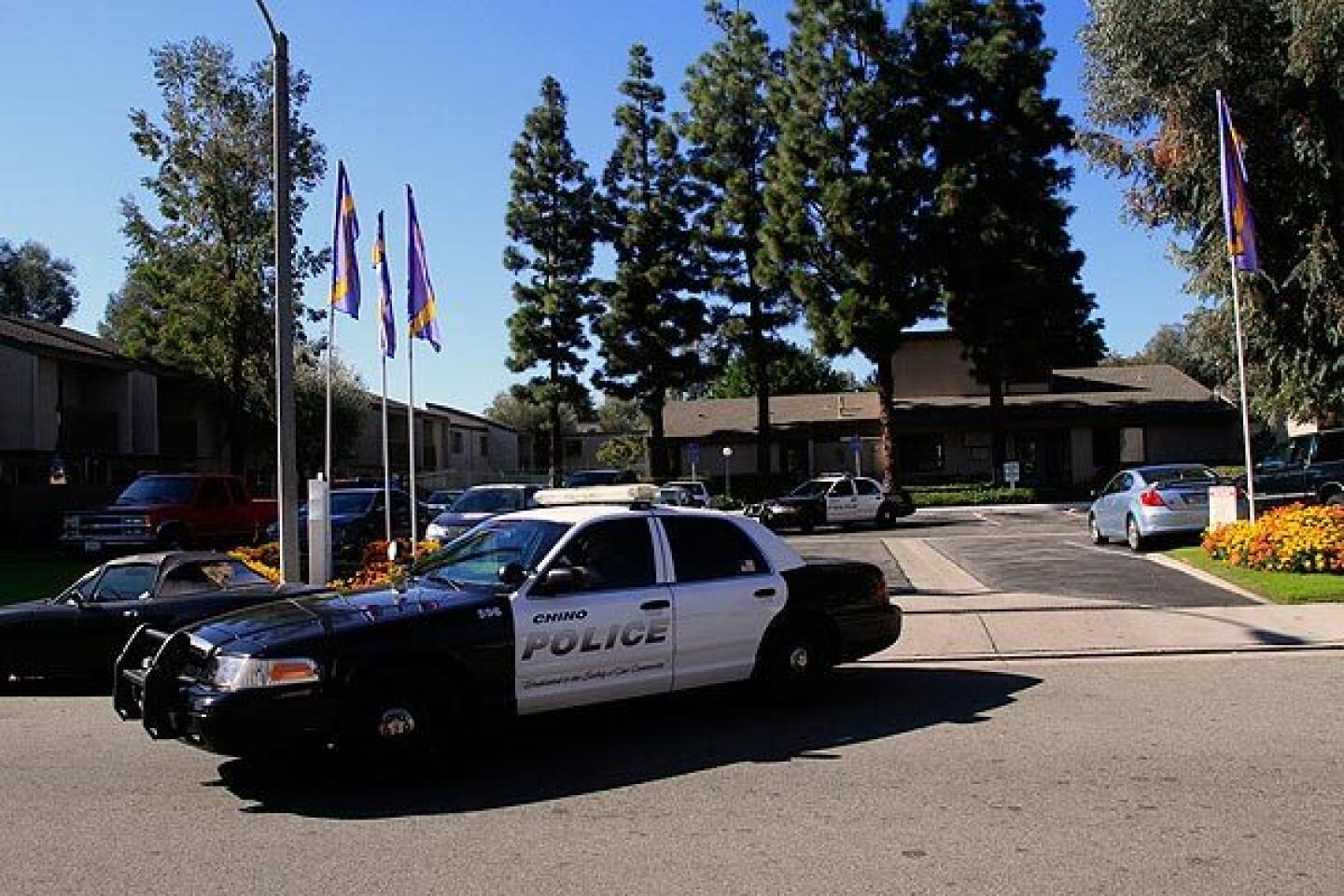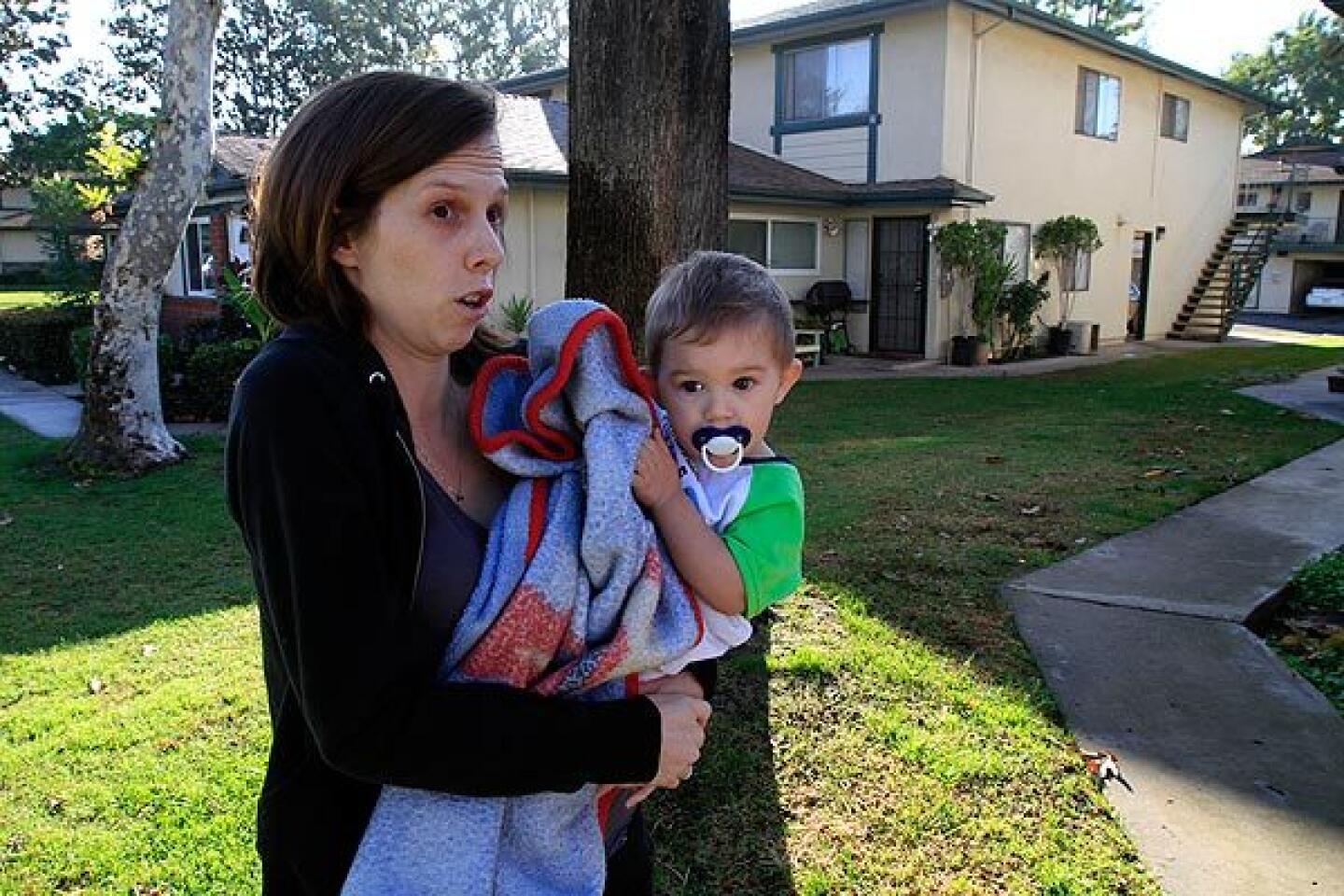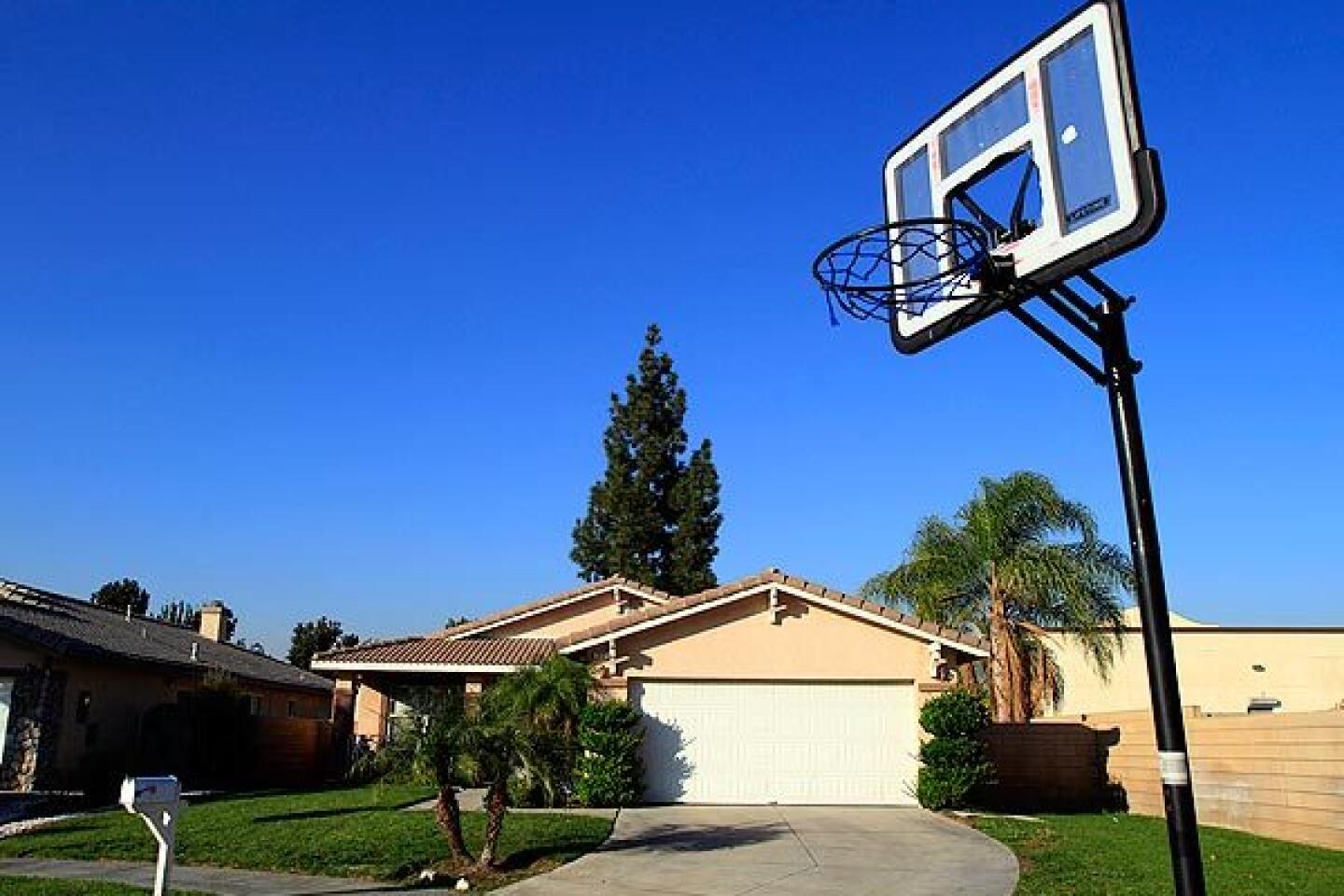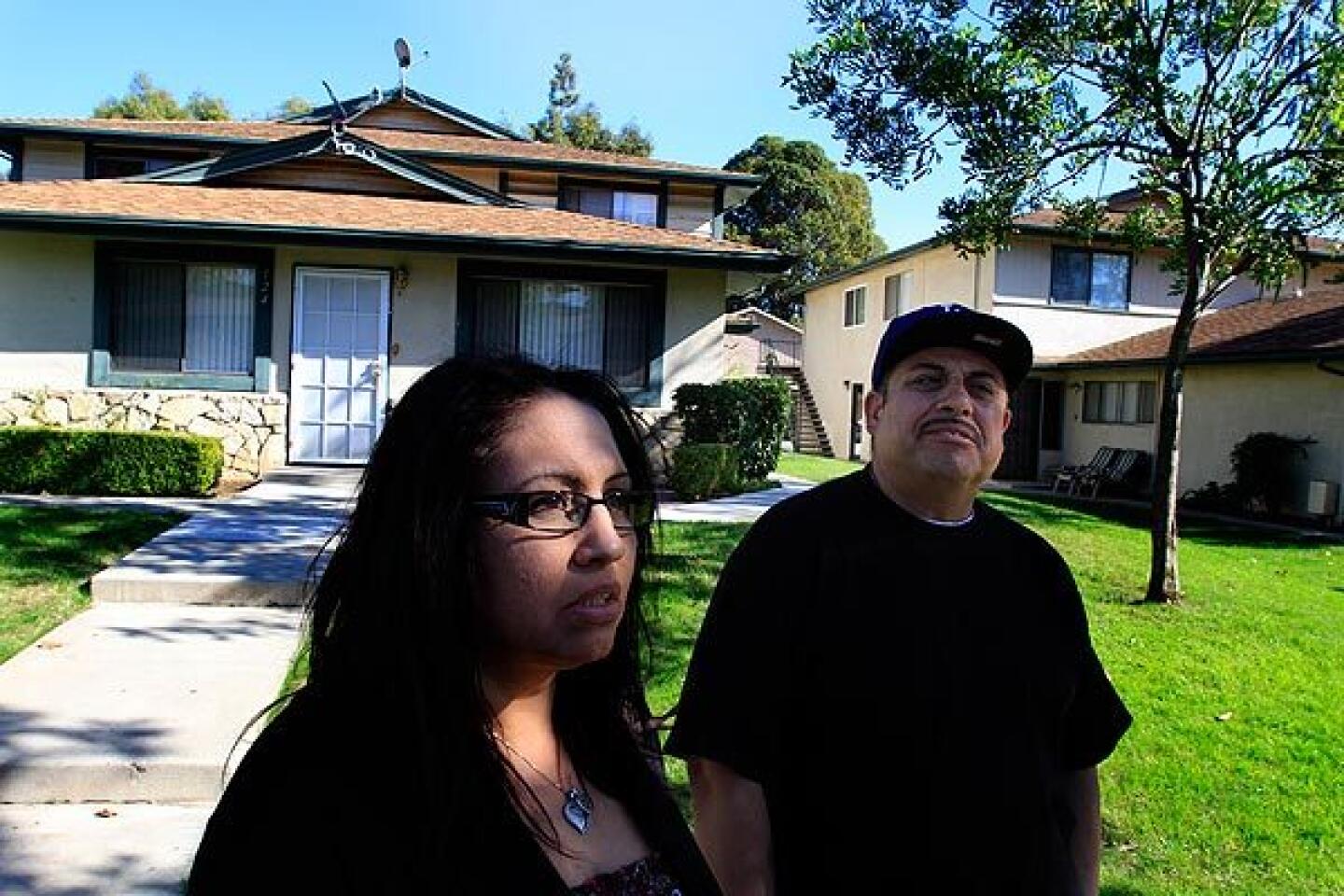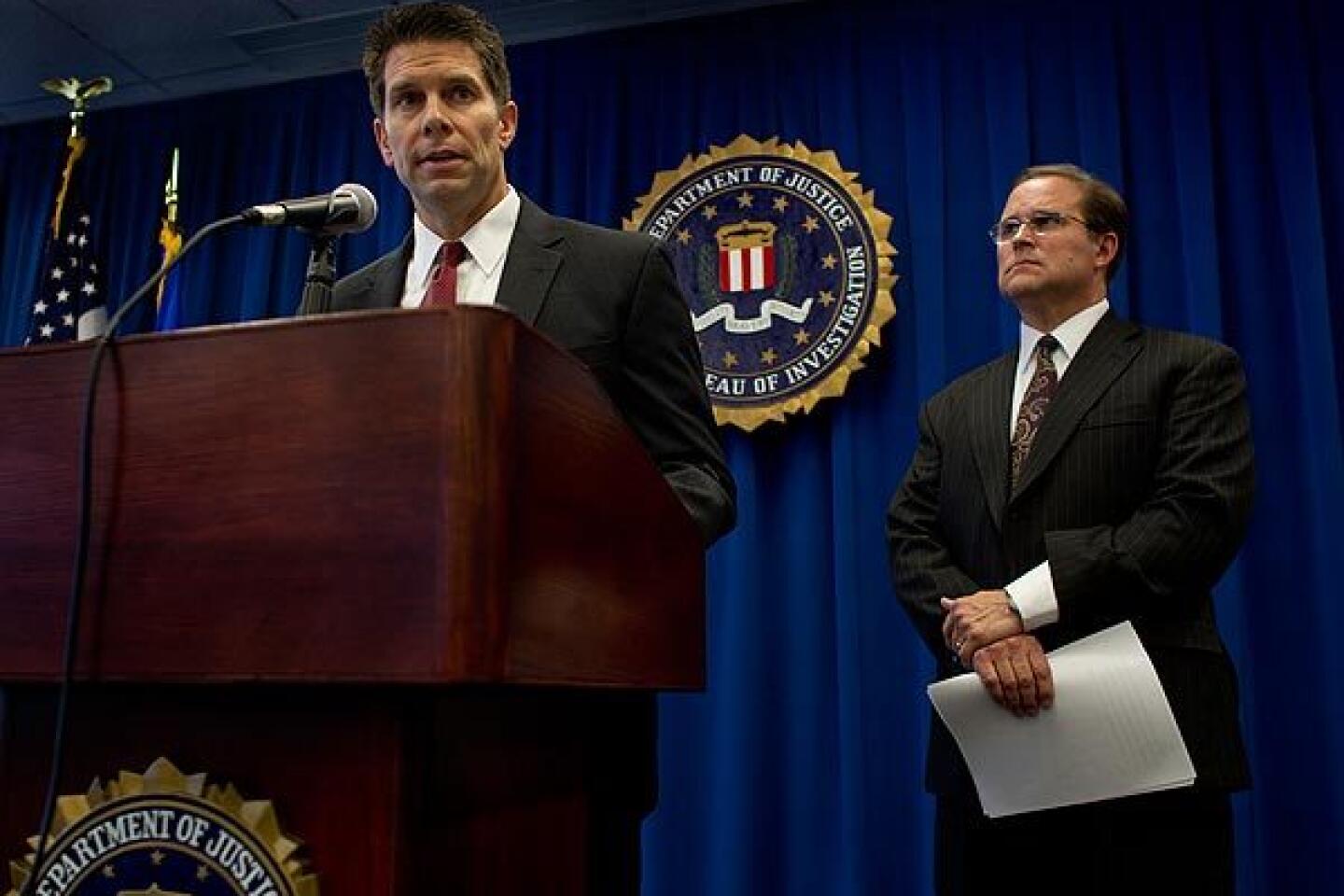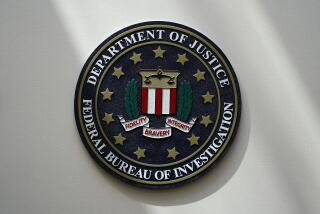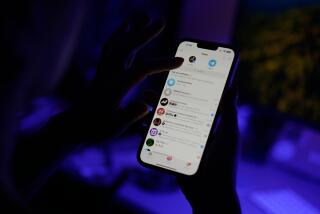Terrorism trial underway for men accused of trying to join Al Qaeda
- Share via
The trial of two Inland Empire men accused of being involved in a terrorist plot resumes in Riverside federal court this week, as jurors weigh whether the defendants’ alleged plans to travel overseas and join Al Qaeda posed a true threat or were overstated by investigators.
Sohiel Omar Kabir, 36, of Pomona and Ralph Kenneth Deleon, 25, of Ontario face five counts of conspiracy, including plans to provide support to overseas terrorist groups, commit terrorist acts overseas and receive Al Qaeda training.
Prosecutors allege that Kabir, a naturalized American citizen who was born in Afghanistan, persuaded Deleon, a Filipino citizen and legal resident of the United States, and two other men to travel to Afghanistan to fight alongside the Taliban and later join Al Qaeda.
The other men, Miguel Alejandro Santana, 23, of Upland and Arifeen David Gojali, 23, of Riverside, are scheduled to testify against the remaining two defendants, prosecutors said.
Prosecutors said Deleon, Santana and Gojali were arrested in November 2012 as they prepared to leave California to rendezvous with Kabir, who had relocated to Afghanistan. Kabir was seized by American soldiers in Afghanistan and returned to the United States to face charges.
The men’s purported plot was documented by a confidential informant who became close with the men and recorded audio and video of them as they spoke openly of their plans to join terrorist organizations overseas, according to the prosecution’s trial memorandum, which lays out its plans for the case.
Prosecutors also allege that the men began exercise regimens, visited firing ranges and renewed their passports in preparation for traveling to Afghanistan. Deleon dropped out of college and sold his car to raise money for the trip, prosecutors say.
“Kabir told Deleon and Santana that he made contacts in Afghanistan and that upon their arrival the three men would join the ‘Students,’ referring to the Taliban, before joining the ‘professors,’ referring to Al-Qa’ida,” the trial memo states.
Defense attorneys argue that overzealous federal authorities misinterpreted the men’s sometimes immature actions as true threats, and said their clients never intended to actually join or assist terrorist groups.
“This was a very carefully planned out plot by the government from the investigation stage onwards,” said David Thomas, who represents Deleon. “It was a manufactured prosecution, is our argument. They had their target two years ago and executed.”
On Friday, the second day of testimony, witnesses included a firearms range manager and a Customs and Border Protection inspector who testified about the men’s actions before their arrest.
Nolan Avery, a manager at LAX Firing Range in Inglewood, testified that Deleon, Santana and a third man, whom defense attorneys identified in court as the confidential informant, visited the range in September 2012 and shot an AR-15 rifle and a Glock 17 pistol.
Avery said he remembered the men because they seemed unenthusiastic and had traveled from the Inland Empire to go to the range, passing other shooting ranges closer to home.
“Usually there is a sense of camaraderie in groups,” he said. “This was kind of weird because they separated right away.”
Later testimony placed Gojali picking up a passport in Los Angeles in November 2012, and Santana returning to the U.S. after a visit to Mexico with his grandmother in January 2012.
A Border Patrol agent testified that Santana crossed into the U.S. carrying anti-American propaganda, including literature from radical imam Anwar al-Awlaki and a copy of the jihadist magazine Inspire. Defense attorneys argued that Santana was also carrying unrelated books that explored conspiracy theories and the occult.
A recurring topic during testimony was the role of the government’s informant. After the prosecution showed video from a hidden camera reportedly taken by the informant of Deleon firing weapons at the range, defense attorneys challenged the evidence, saying that only the informant could verify the authenticity of the video. The defense has subpoenaed the informant to appear.
Although U.S. District Judge Virginia Phillips determined that the video evidence was admissible, the confidential informant remains a sticking point in the case.
The Los Angeles branch of CAIR, the Council on American-Islamic Relations, an advocacy organization, has called for the public to share any additional details they may know about the informant.
The organization alleges that the frequent federal use of informants in terrorism cases can lead to entrapment of suspects.
“We’ve seen other communities targeted by the FBI with informants sent into communities and mosques,” said Fatima Dadabhoy, senior civil rights lawyer for CAIR in Los Angeles. “I think what’s important about not just this case but this issue in general is to make sure that when we are doing terrorism cases, we’re not using improper tactics.”
The trial is set to resume Tuesday.
Twitter: @mtthnsn
More to Read
Sign up for Essential California
The most important California stories and recommendations in your inbox every morning.
You may occasionally receive promotional content from the Los Angeles Times.
